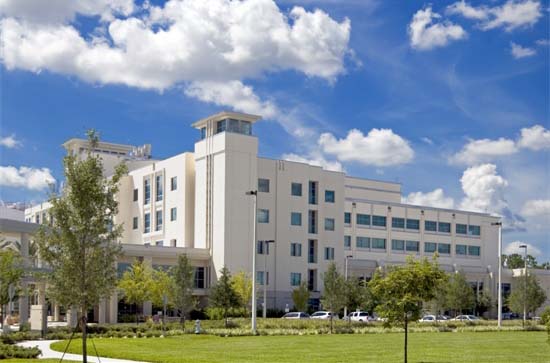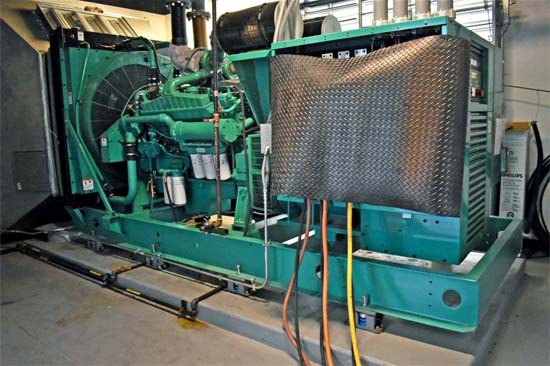Healthcare Facility Types and Regulating Organizations

The Healthcare industry is divided into many sectors. Approximately five different facilities provide the various levels of care. These facilities are:
- Hospitals - Provide care for people with health issues resulting from injury, disease, or physical genetic abnormalities
- Ambulatory Surgical Centers - Often termed outpatient surgery centers. Designed to accommodate patients with minor surgery at a cost savings, when compared to hospital.
- Doctor's Offices - Provide patients services such as: examinations, sutures, vaccinations, and treatment of colds
- Urgent Care Clinics - Patients can visit an urgent care clinic without appointments. These facilities provide care to patients with minor medical emergency.
- Assisted Living/Nursing Homes - Utilized when a patient requires 24-hour care on a long-term basis. Medical personnel are on-site 24-hours a day.
The Joint Commission, National Fire Prevention Association (NFPA), and American Society of Healthcare Engineers (ASHE) are among the federal organizations that regulate these facilities. In addition, individual states can impose regulations. These regulations are imposed because of geographical location and/or circumstances that exist only in the affected state.
NFPA 110 is the publication addressing emergency power configurations for healthcare facilities.The NFPA requirements include electrical code and testing. The Joint Commission issues recommendations above NFPA standards. Medical facilities are categorized in levels. Level 1 classifications are issued when systems have a direct impact on life or safety with power interruptions. Level 2 classifications are issued when the operation of the system is less critical to life safety from a loss of power. To get more information on the standard and how it applies to generator sets, you can also read our recent article on
NFPA 110 Standard Overview on Generator Requirements.
Many healthcare facillities are either planning for or currently upgrading their backup power systems for safety, get details on codes and standards like
NEC 700 also may apply here.
Joint Commission Standards & Requirements
The Joint Commission first began as the Joint Commission on Accreditation of Hospitals (JCAH), and later adopted the name of Joint Commission on Accreditation of Healthcare Organizations (JCAHO). In 2007, the organization went through a major re-branding and simplified its name to Joint Commission. Standards are developed on the basis of an objective evaluation process and can help organizations measure, assess, and improve performance. The commision helps oversee requirements and has a
useful Standards FAQ page for all types of facilities (which includes generator testing).
The Joint Commission reviews all hospitals every three years. Life Safety and Environment of Care inspection is divided into various inspections. Emergency Power Systems maintenance and testing is one of the inspections. The tests include manufacturer generator load test, weekly inspections of generators and batteries, 30-minute load test monthly, fuel and monthly transfer switch testing. Large facilities often schedule testing to satisfy both NFPA and Joint Commission requirements.
Utility power to healthcare facilities is extremely dependable. Many times, when utility power is lost, it is short term. However, recent floods, hurricanes, and other severe conditions have also caused long-term power outages. The Joint Commission issued recommendations to include planning for long-term power outages. A summary of the recommendations is below:
- Analyze critical equipment power requirements and compare with installed generator(s) capabilities and upgrade emergency power as needed.
- Label generators, switches, circuit breakers. Maintain a map of the emergency distribution system.
- Provide training and test all operators that maintain the emergency power system.
- Test fuel storage tanks and replace when beyond lifespan or contaminated.
- Generator operators communicate with management and clinical leaders.
- Improve reliability by completing all maintenance and testing as required.
Each accredited organization receives one complimentary manual delivered via E-dition. For information about standards content or development process contact
Mary Brockway.
Emergency Power Generators at Healthcare Facilities
Diesel or natural gas generators help meet the backup power needs for healthcare facilities throughout the world. Some hospitals have turned to natural gas (NG) generators. Natural gas is a clean burning fuel. No storage tanks are required, and runtime is only limited by the availability of gas utility. However, if the natural gas utility fails, then emergency power ends. Diesel generators use diesel fuel and do not rely on a local utility to operate, so they remain the option of choice for most organizations.
Generators are complete units consisting of an engine, generator end, cooling, and exhaust systems. Generators satisfy a wide range of emergency power requirements for the healthcare industry. Each design is available in various sizes. The typical designs are:
- Generator Skid - This design is used in hospitals and large facilities that have a high-power demand. Typically located in a dedicated room, these generators must have an external fuel supply and exhaust connections.
- Sound Attenuated Enclosure - The generator skid is mounted to a framework with the fuel tank below and be enclosed in a sound attenuated container. Used at sites that do not have dedicated machinery rooms.
- Portable - Complete units that can easily be towed from location to location within a healthcare complex. Often used when main generators are down for maintenance or repairs.
After initial generator installation, maintenance and testing are required by all healthcare regulatory organizations. Our skilled field technicians are equipped with the most up-to-date tools and service truck. We can provide all tests and maintenance required by the Joint Commission and NFPA 110.
Generator Source has over 35 years of experience with generators. We offer sales, rentals, and service on new and low-hour used generators. Call us at 800-853-2073 to discuss your generator needs or
contact us online for more information.
>>Back to Articles & Info<<